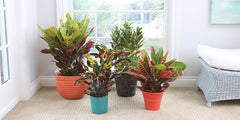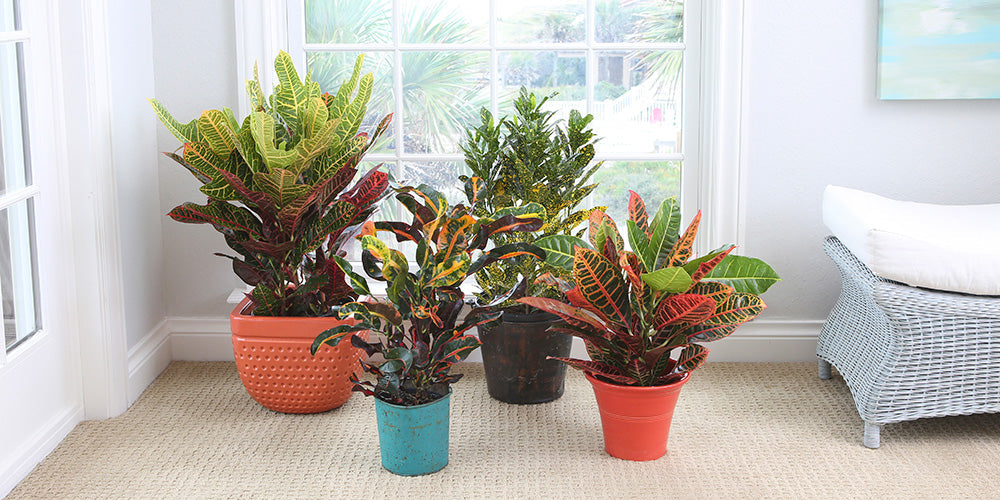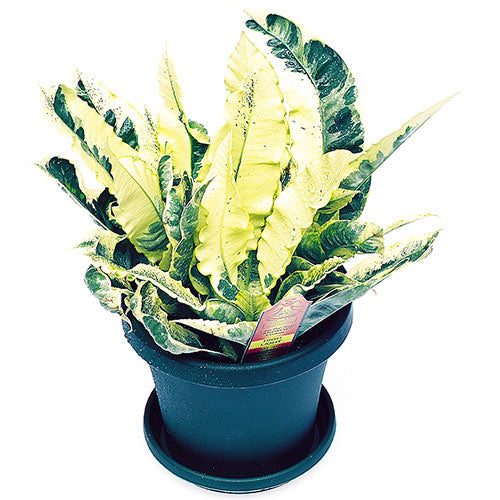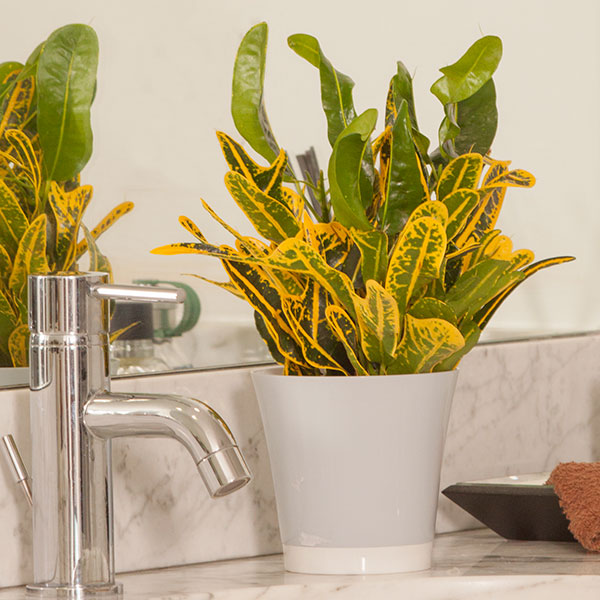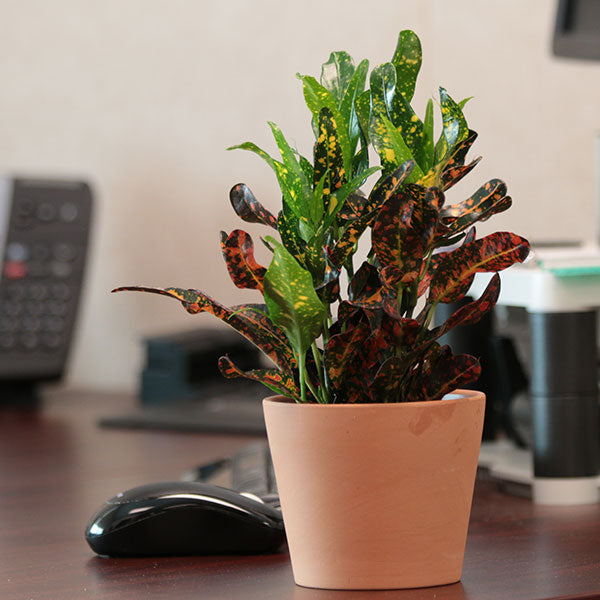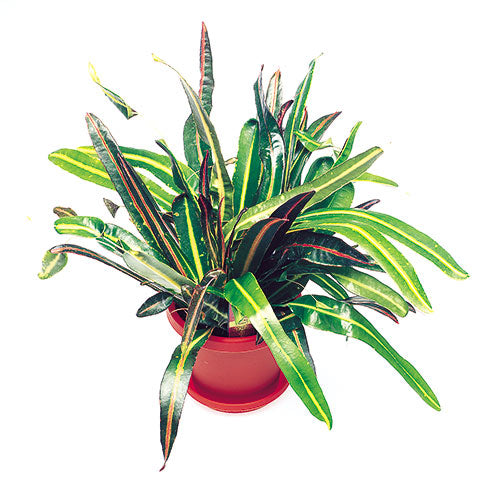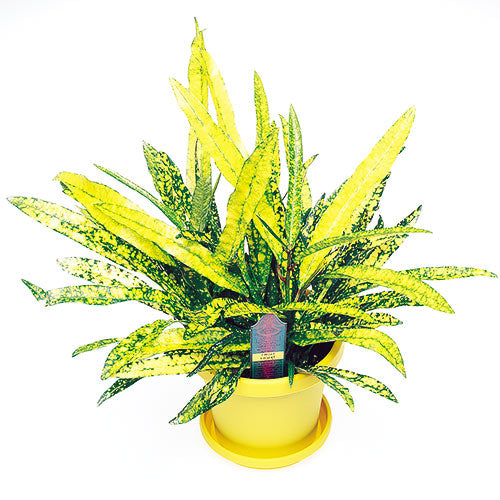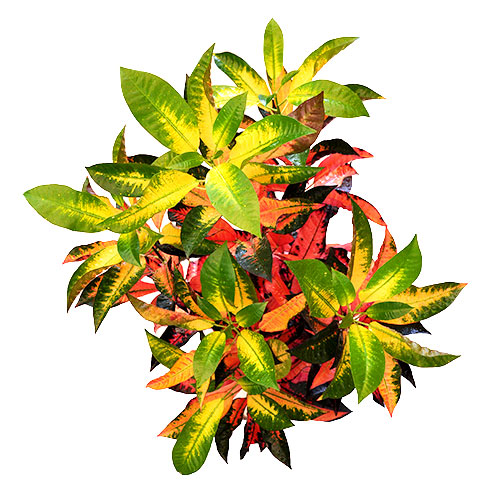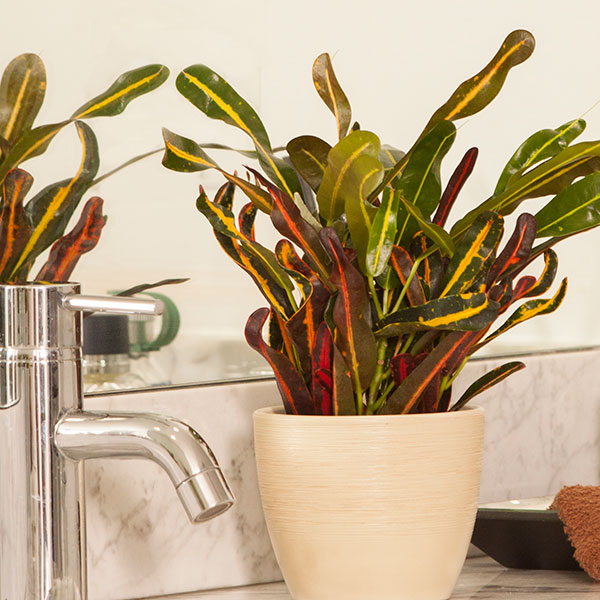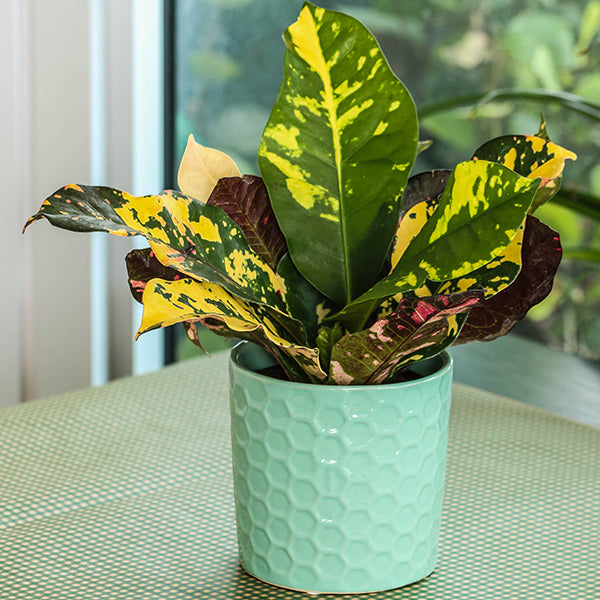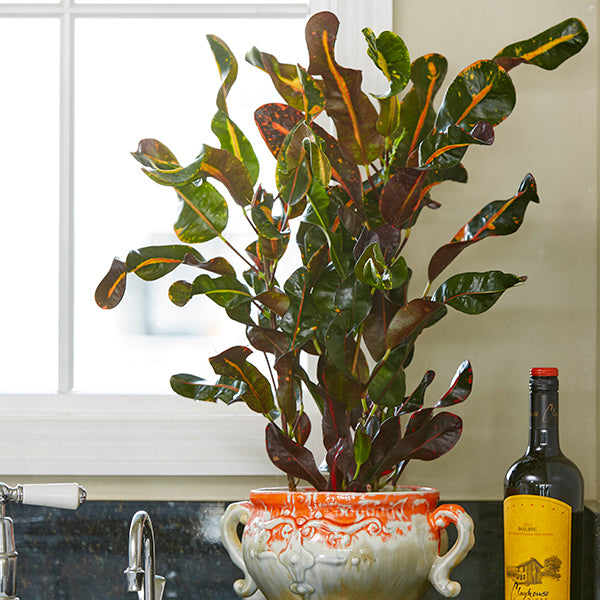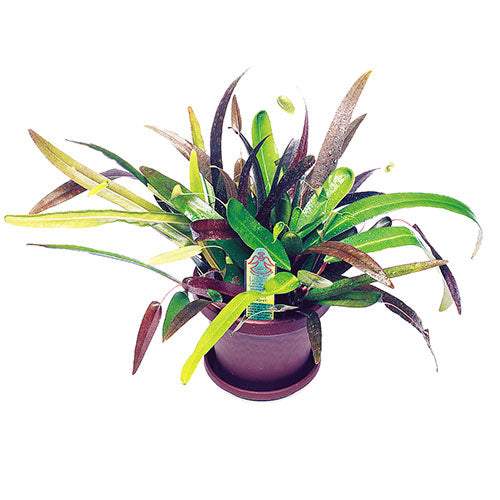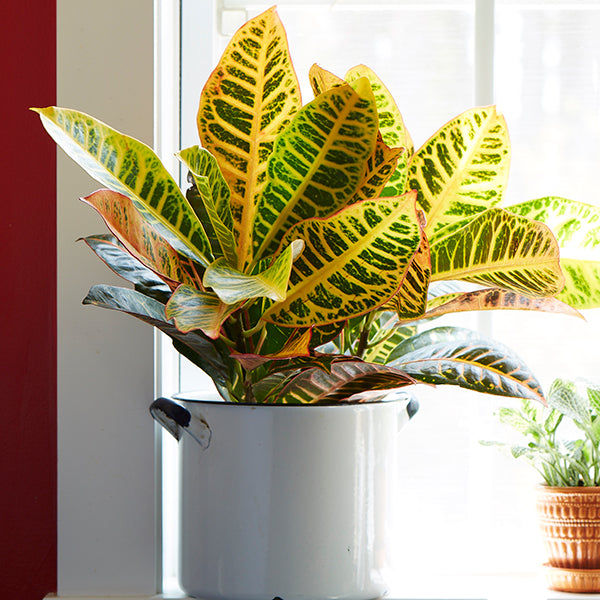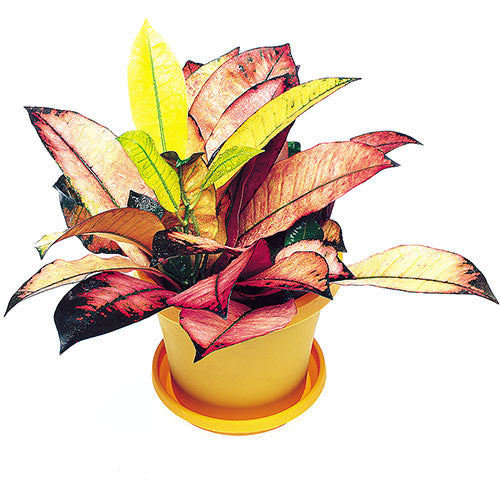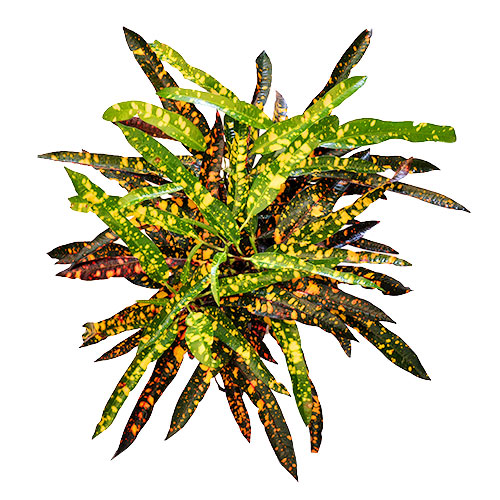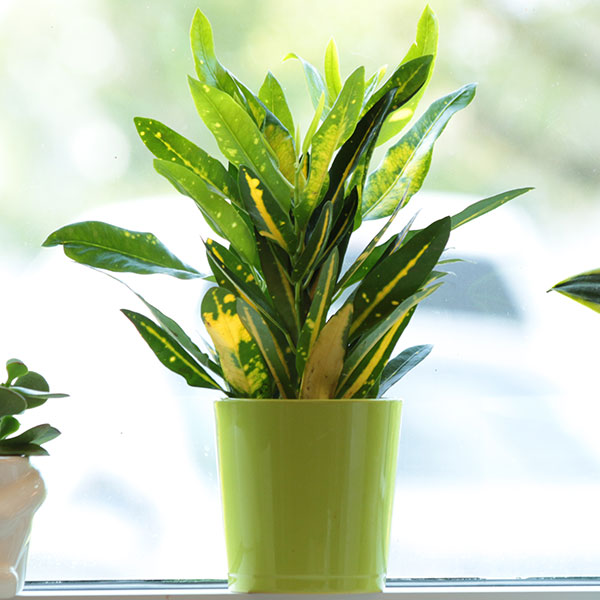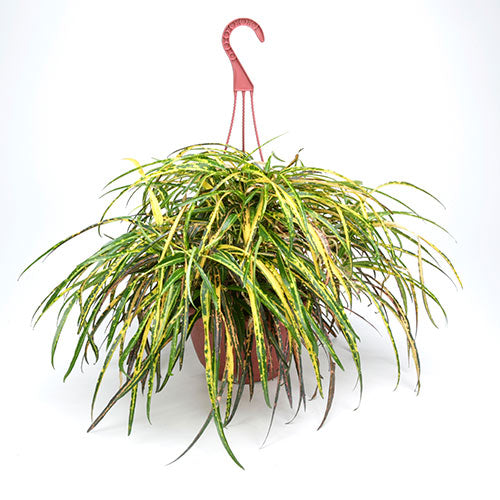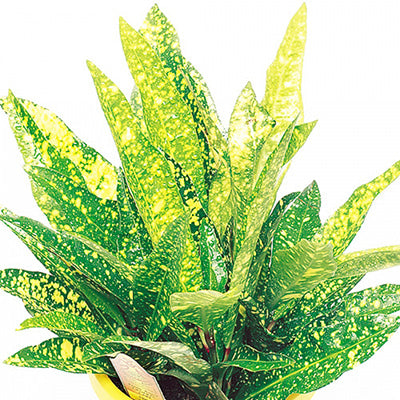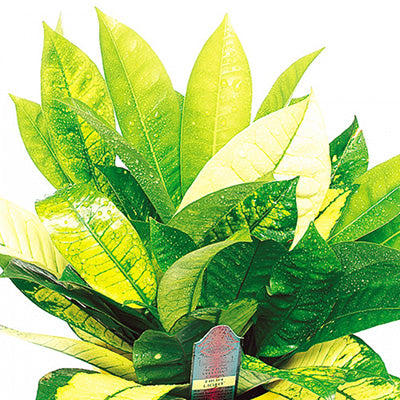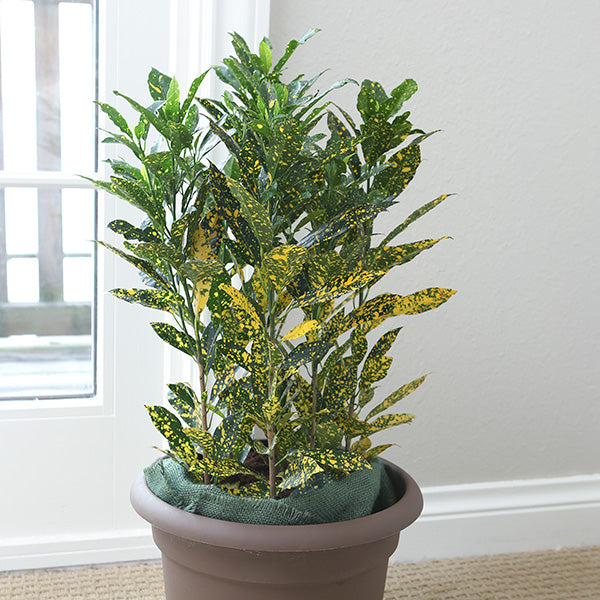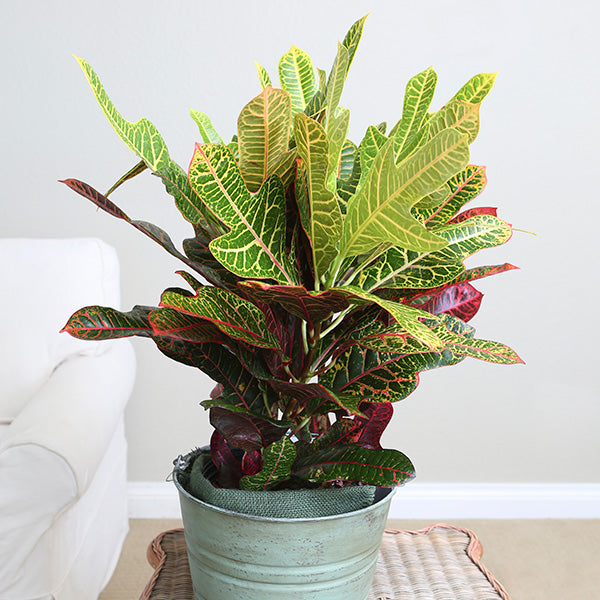Croton (Codiaeum spp.)
Croton Plant Features
One of the boldest houseplants around, you can't miss crotons because of their colorful foliage. Often boldly marked with bright yellow, orange, red, and even black, crotons are perfect for adding a tropical touch to indoor decor. They're particularly eye-catching in bright dining rooms and living rooms where their foliage helps energize a room.Boost croton's appeal even more by growing yours in a colorful pot that accents the brilliantly colored foliage.
Croton Questions?
If you have questions about your crotons, just email our experts!
Croton Growing Instructions
Grow crotons in a bright spot: They like lots of light to produce all those colorful leaves. If your croton doesn't get enough light, you might find the plant grows tall and lanky, with few leaves that don't have deep, rich hues. Ideally, your croton should cast a good strong shadow much of the day where you grow it. Happily, it thrives in both natural and artificial light.Water crotons when the top couple of inches of the potting mix starts to dry. They're not as thirsty as many other common houseplants (such as peace lily, fittonia, or polka dot plant), but do need regular watering. Crotons will drop their older leaves if they stay too wet or too dry for extended periods. If you're not sure whether it's time to water your croton, it's usually better to let it stay a little too dry than too wet over time.
Like most houseplants, they also appreciate abundant humidity. You can boost humidity for your croton by growing it in a well-lit kitchen or bathroom, placing a small humidifier nearby, or grouping it nearby other houseplants.
Fertilize croton in spring and summer to keep it healthy and growing. Crotons only need fertilizer once or twice during the season, but you can get them to grow faster by fertilizing more frequently. Follow the directions on the fertilizer package whenever feeding your plants.
-
Water
Medium water needs
-
Light
Indoors: High light
-
Colors
Green
Orange
Pink
Purple
Red
Silver
Variegated
White
Yellow
-
Special Features
Colorful foliage
Purifies the air
Q&A
My crotons look like they have black powder on the leaves. What's wrong?It sounds like your crotons are suffering from an insect infestation. The black stuff you're seeing is a harmless side effect; you should be able to easily wash it off the plant with room-temperature water and a soft cloth. Treat for the insects to prevent the black powder (called sooty mold) from coming back.
